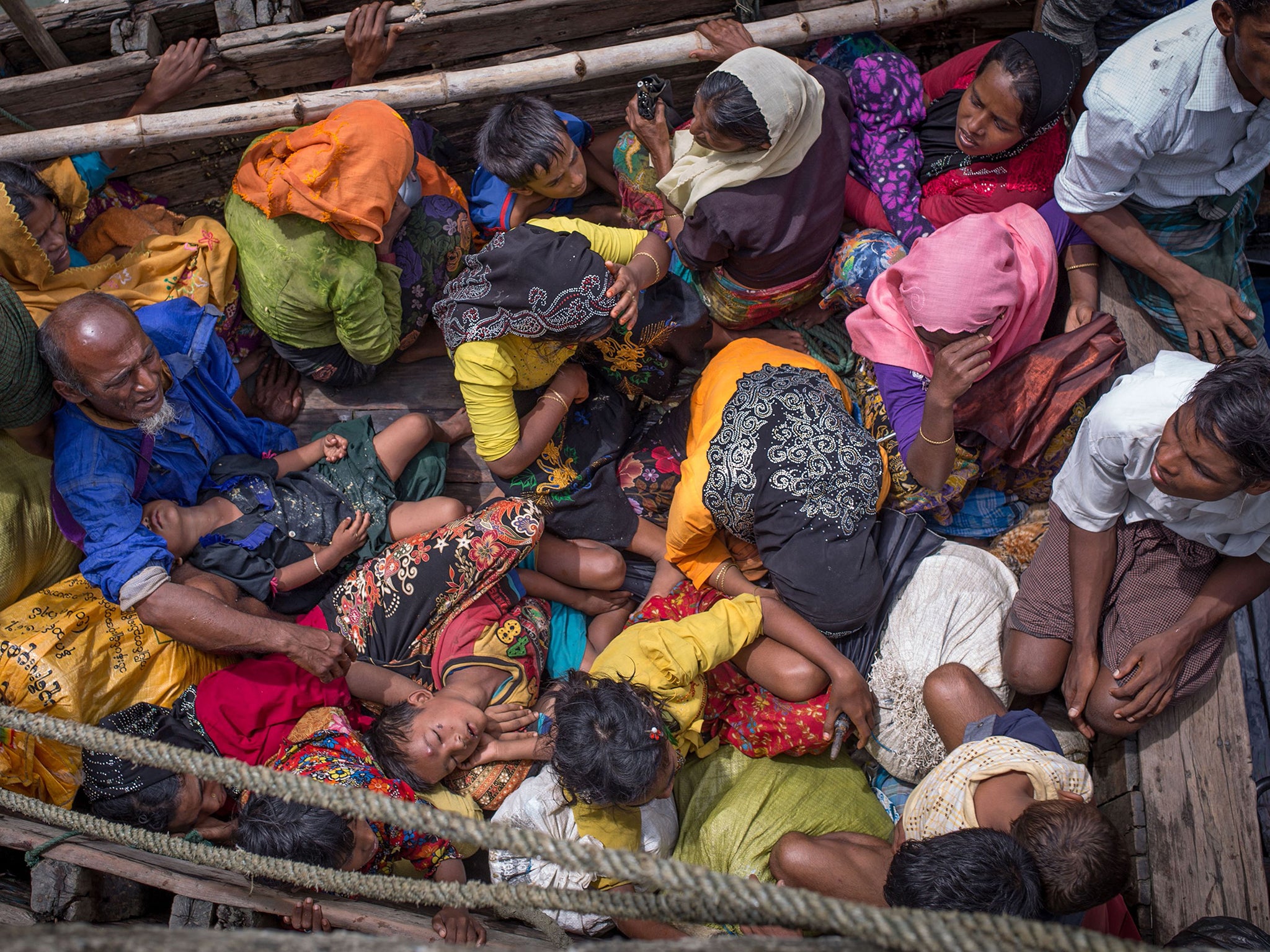International Criminal Court to investigate Myanmar’s Rohingya deportations
UN says military leaders should face genocide tribunals
The International Criminal Court (ICC) has launched a preliminary investigation into the Rohingya crisis to determine whether the mass deportations of Muslims from Myanmar into Bangladesh was a crime against humanity.
Chief prosecutor Fatou Bensouda said if the evidence collected in the initial probe was sufficient, it would pave the way for a full-blown investigation.
Myanmar's military has been accused of a horrifying list of violations, including rape, murder, torture and the burning of Rohingya villages, leading about 700,000 people to flee to neighbouring Bangladesh.
Ms Bensouda said she will look at reports of “a number of alleged coercive acts having resulted in the forced displacement of the Rohingya people, including deprivation of fundamental rights, killing, sexual violence, enforced disappearance, destruction and looting”.
Although Myanmar is not a member of the Hague-based court, Bangladesh is. Judges said in their landmark ruling that because of the cross-border nature of the deportation, Ms Bensouda has jurisdiction.
Ms Bensouda’s announcement came on the day Myanmar's government issued a critique of a UN report which called for top military officials to be prosecuted for genocidal crimes against Muslim Rohingya.
In the 432-page report, members of a fact-finding mission detailed violations committed by Myanmar's powerful military.
UN-backed investigators spent 13 months examining the conduct of the military and other armed groups during expulsions that erupted in August 2017 following militant attacks on security posts in Rakhine state.
Presenting the findings to the UN-supported Human Rights Council, team chairman Marzuki Darusman gave a harrowing account of the persecution the Rohingya face.
He said that the military crackdown had led to the deaths of at least 10,000 people, and the destruction of more than 37,000 Rohingya homes and structures.
"With a heavy heart and deep sadness, we have drawn conclusions, on the basis of the facts, that we never expected would be as grave as they are," Mr Darusman said.
"What we have found are not only the most serious human rights violations, but crimes of the highest order under international law."

Mr Darusman added the democratic transition in Myanmar was at a standstill because "democracy requires a government that accepts scrutiny, it depends on leadership that actively combats hate speech and harmful misinformation.”
However, Myanmar's ambassador, Kyaw Moe Tun, took to the floor at the Geneva forum to reject the "one-sided" the panel's report, first summarised on 27 Aug and issued more fully on Tuesday.
"The way the report portrays ... the national races of Myanmar is misleading," he told the 47-member body. "It also undermines the government's effort to bring peace, national reconciliation and development to the entire nation."
"Regardless of the lack of balance, impartiality and fairness, the government of Myanmar takes the allegations of human rights violations seriously," he said. "The government will not condone human rights violations."
The ambassador added that, "We share deep sympathy and concern for all displaced persons, especially women and girls."
Additional reporting from Associated Press
Join our commenting forum
Join thought-provoking conversations, follow other Independent readers and see their replies
Comments
Bookmark popover
Removed from bookmarks